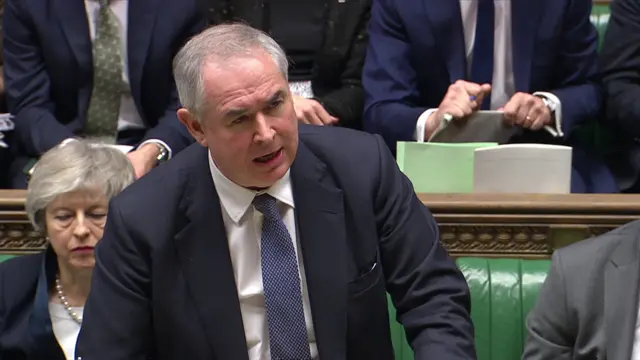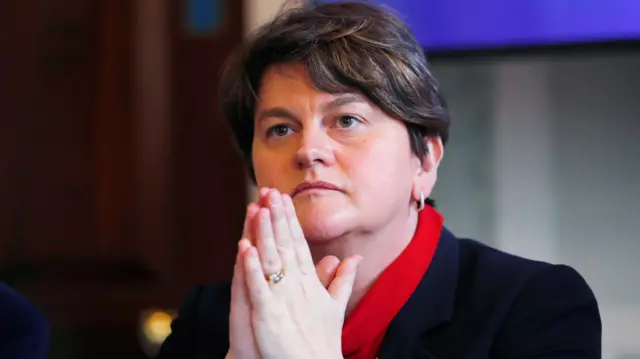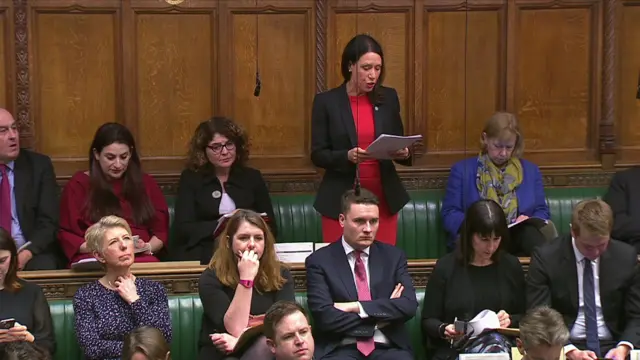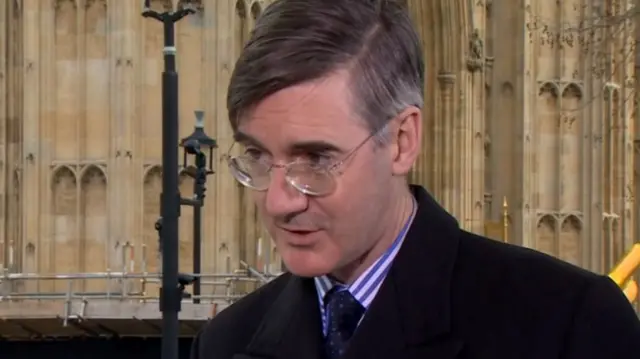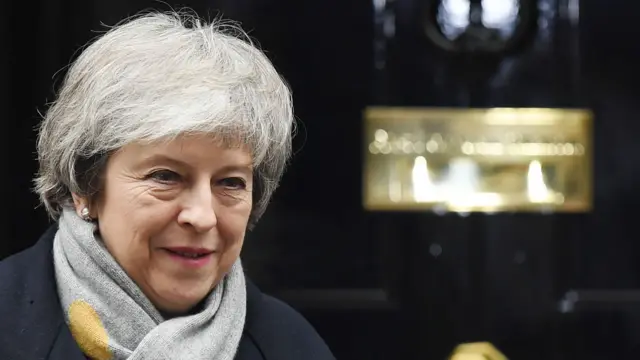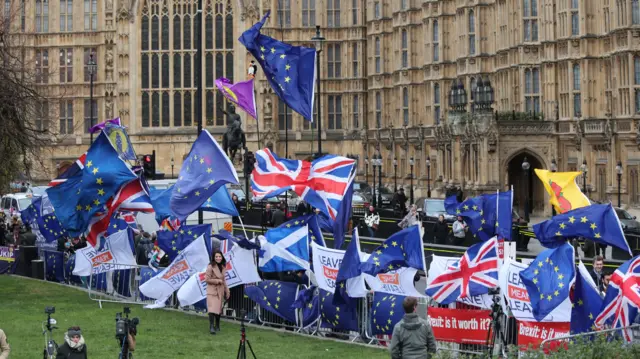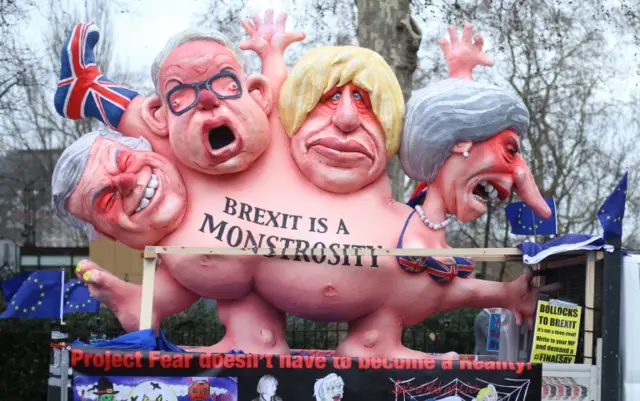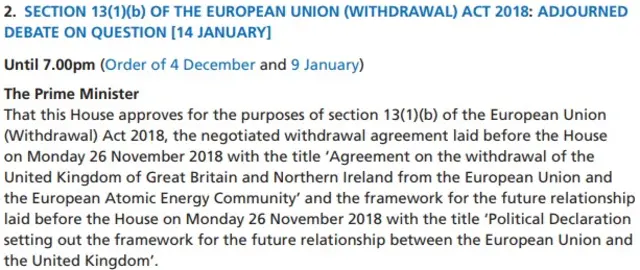What amendments has the Speaker selected and what do they mean?published at 13:09 GMT 15 January 2019
Brexit Withdrawal Agreement Debate
 House of Commons
House of Commons
Parliament
The Speaker has provisionally selected four amendments.
- Amendment A (Labour leader Jeremy Corbyn's amendment) which rejects the deal because it fails to provide a permanent customs union and "strong single market deal", as set out in Labour's "six tests", rejects leaving with no deal and resolves to "pursue every option" that prevents either no deal or leaving on the basis of the current deal.
- Amendment K (SNP Westminster leader Ian Blackford's amendment) which declines to approve Theresa May's Brexit deal "in line with the views of the Scottish Parliament and the Welsh Assembly that they would be damaging for Scotland, Wales and the nations and regions of the UK as a whole", and calls for the UK's departure from the EU to be delayed until another withdrawal deal is agreed.
- Amendment B (Tory MP Sir Edward Leigh) which makes clear the Northern Ireland backstop is temporary and should remain temporary and calls for assurance that, if the backstop doesn't end by the close of 2021, this will be treated as a fundamental change of circumstances and would terminate the Withdrawal Treaty on 1 January 2022.
- Amendment F (Tory MP John Baron's amendment) gives the UK the right to terminate the Northern Ireland backstop without the agreement of the EU.
The Speaker says if the Corbyn amendment is agreed he will then move to the original question; but if it is not he will then move onto the Blackford amendment.
If the Blackford amendment isn’t approved he will then move on to the Leigh amendment and if that is not approved he will then move on to the Baron amendment.
If any of the four amendments are approved by the Commons the Speaker will then immediately move to a vote on the original motion.
You can view today's Order paper for the House of Commons here, external.
